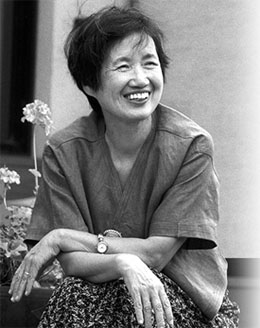 The great, recently deceased writer of the 20th Century, PARK Wan Suh, has donated all of her money to Seoul National University’s College of Humanities. According to her old school, the family of the late Park has generously given 1.3 billion KRW for the College of Humanities to be used for the purpose of educating future literary talent. The College of Humanities is contemplating two ways in which to use this money: first, to establish a funded professorship in her name and appoint a new professor for the department, and second, setting up a ‘Park Wan Suh Fellowship Program’, which will support students and researchers taking doctoral courses in the field.
The great, recently deceased writer of the 20th Century, PARK Wan Suh, has donated all of her money to Seoul National University’s College of Humanities. According to her old school, the family of the late Park has generously given 1.3 billion KRW for the College of Humanities to be used for the purpose of educating future literary talent. The College of Humanities is contemplating two ways in which to use this money: first, to establish a funded professorship in her name and appoint a new professor for the department, and second, setting up a ‘Park Wan Suh Fellowship Program’, which will support students and researchers taking doctoral courses in the field. Park’s daughter, Ho Won Sook (57), who is also an essayist as well as a SNU professor in the College of Medicine, said “We were having family discussions, trying to find a suitable way to give back to society with her fortune. We finally decided to donate all of the money to the College of Humanities.” She also insistently added that, “we are simply following the wishes of our mother, so what we are doing is nothing to boast about.” The dean of the College of Humanities, BYUN Chang Ku, expressed his deep gratitude and stated, “If we exclude building donations, 1.3 billion KRW is the largest amount ever to be donated by an individual.”
Sixty years ago the treasured writer had to abruptly end her studies as a SNU student in the Department of Korean Language and Literature because of the unfortunate outbreak of the Korean War. Later on in 2006, SNU presented Park with an honorary literary Ph.D. degree in recognition of her successful career and prolific contributions to the literary world. She was the first cultural artist to receive an honorary literary Ph.D. from SNU. The writer initially respectfully but firmly declined the university’s offer until she finally gave in to the repeated requests of the university. During the ceremony, Park modestly stated, “The University needn’t be so generous to me, because I have already reaped the benefits of being a SNU student. It was when I was the sole breadwinner; I was able to find a job as a clerk in the military confectionary and I owe it to the fact I was able to introduce myself as a SNU student.”
Park was a prominent and representative figure in Korean literary society. She wrote about the Korean War, the division of the Korean peninsula, the materialistic society, and widespread oppression of women. The beloved artist pulled few punches when she critically analyzed society and real life by relating her writing to controversial issues through her literary work. She wrote in a magnificently free-flowing fashion with a smooth and elegant style. She successfully enlightened the literary world with the combination of her acute acumen and her trademark middle-aged woman sensitivity. She produced a steady flow of lauded novels and essays such as The Unforgettable, The Winter of the Year was Warm, The Road Never Traveled is Beautiful, Bare Tree, The Woman’s House and Are You Still Dreaming?, and a lot of her work has been turned into popular films or dramas. Park’s Mother’s Picket was published in French in 1993, and her collection of short stories was published in English under the title of My Very Last Profession in 1999.
Park Wan Suh has always been a charitable person as she regularly donated the lump sums she received from her newly published work to charity. She was also well known as a tremendously compassionate figure who worked for several different charity organizations. From 1993, she had worked as a goodwill ambassador for UNICEF. She was a member of the governmental committee on performance ethics in 1994. In 2005, she wrote an essay on hope with several other literary figures and celebrities and donated all proceeds to a ‘talent donation’ program. She had also been making monthly donations to a children’s rehabilitation center since 2007. The head of the center stated that “Park was always a person who knew how to donate selflessly without anyone finding out. She would even effortlessly give money to troubled people she had never heard of before“. In 2008, it was belatedly discovered that she had anonymously donated 10 million KRW to a female homeless shelter.
This past January the whole country mourned when Park died of cancer at the age of 80. She is buried in a Catholic cemetery in Yongin, Gyeonggi Province. SNU announced that it is talking to Park’s family so as to ensure it uses the donation in a way she would have seen fit, and that it will utilize the funds to assist the field of humanities, which is currently undergoing difficult times.
Written by YU Minseok, SNU English Editor, brits@snu.ac.kr ?
Reviewed by Eli Park Sorensen, SNU Professor of Liberal Studies
Proofread by Brett Johnson, SNU English Editor

